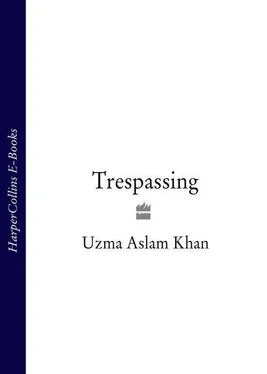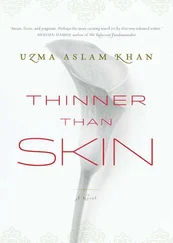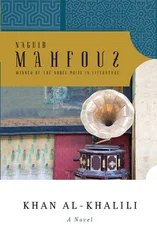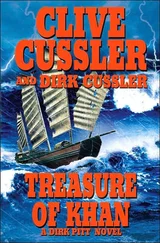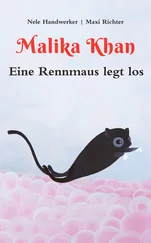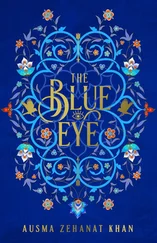He recited them while rinsing pots at Fully Food. There was Robot Wang who scraped ranch dressing and beef and rolls into trash bags that Robot Ron tied and heaved onto his back like Dick Whittington off to seek his fortune in a great city. Robot Nancy had simply quit. She was going to take parttime classes in a community college and work a real job. ‘Not like here,’ she said, ‘in the united fucking colors of Benetton.’ At the bus station, he gave her a robot kind of kiss and the next day, a robot from Trinidad replaced her. Daanish never bothered introducing himself, nor did anyone else.
It continued like that into the fall. He barely even wrote to his parents. Sometimes the phone rang in the hall and he heard a student pick it up and say, Who? Day-nish? He knew it was his father but didn’t answer when the messenger knocked on his door. He’d always remember that: he hadn’t answered all his father’s calls. The following year, he’d be dead.
Most of all, Daanish avoided Liam. The two had hardly spoken since their argument outside Hallmark, even though he’d gone to Iris’ recital. The notes had scraped his nerves and from the way Liam clenched his jaw Daanish knew he couldn’t concentrate either. Afterwards, they both congratulated Iris excessively and then Daanish took a taxi back to his dorm. It had cost everything he had, but he wasn’t going to wait for Liam to offer a ride.
Increasingly, Daanish retreated to his sunken garden to watch the season change. And to reflect on his friend. Looking up at an old oak, he remembered climbing it last fall, while Liam photographed him from below. He’d almost fallen off when Liam hollered, ‘Why do women have vaginas?’
‘No idea.’
‘So men will talk to them.’
Daanish snorted: ‘Not in my country.’
Liam guffawed. ‘You’re living in the wrong place, man! Here’s another one: why do women take so long to orgasm?’
‘Who cares?’
‘Oh, you knew it already!’
And in the winter, the two had come here often to enjoy the chilling silence, occasionally puncturing it with chatter. But they never discussed the war.
Eventually, alone in the garden, Daanish slowly began to feel his pulse again. The nuthatches were preparing for winter. So were the honeybees, circling around him less with each day. Petals curled and dried, and the color came early to the leaves. A tiny leg of sensation kicked inside him. After many months, he found himself compelled to again make sense of what had been effaced.
He enrolled in a journalism class with a different professor. But like Wayne, she steered discussion toward consumer happiness. If the public wasn’t getting the story it wanted, it was being exploited. She called the right story ‘soft news’ and showed videos of anchor personalities that made the softness the softest. Unlike Wayne, she asked for no journals.
Daanish never interrupted her but still continued his search in the library.
In a medical journal one day, he found a letter written by a conscientious objector, a Marine who’d spoken at protests throughout the war before turning himself in.
Daanish read the letter.
Gandhi and Martin Luther King Jr are heroes but my greatest hero is Mohammad Ali. No politician or activist can understand the shame of being asked to serve your country but refusing. A man on a hunger strike feels cleansed. Maybe he sees God. But a man who says no to an oath feels like a coward. He feels like a wuss. Like no God could ever love him. He hangs his head and wonders if he’s a man or a sick nothing. Ali knows. And now look: people in every corner of the world are crazy for him.
I grew up the fifth child of a white laborer from Indiana. A hod carrier whose every second was taken up by water and sand. What were the right proportions? That’s what my old man cared about most. Mortar and stone. He liked to say that stone was the oldest construction material in the world. Before wood, before brick. He was carrying on a tradition left behind by people who must have looked very different from him. The Druids. The Pharaohs. He was poor but he was no fool. He had respect for those who came before him. And he wanted me to keep building too, but differently. None of his kids became hod carriers.
I joined the army at seventeen and it sent me to college and gave me health insurance. I was nineteen when training for the Gulf War began. Most of the faces around me were not white. They had been lured, like me, by the promise of security. But most of them started wondering why they were fighting for a country that didn’t give a shit about them. Yeah, they had the right to vote now and they could own land — a step up from many Americans who fought in World War II. But they came from neighborhoods racked by crime and illness and they knew they were only going to see more of it. From being the victims of despair, they knew they’d become its agent. They asked why the wealthier kids weren’t willing to fight for their country. They are the ones who ought to have enlisted. They are the ones who ought to say thank you.
The numbers refusing to go to Saudi Arabia started rising. This was not reported in the media. We were only shown kissing our girlfriends goodbye. That’s good business, and that’s what corporate America is all about. The best brand. We have the most famous in the world: Coca-Cola, McDonald’s, Nike, Kodak. And now another: Desert Storm. They want you to buy it, today.
Daanish made a photocopy and put the journal away. Then he tried to picture the Marine, the son of a hod carrier. What exactly had pushed him to take this stand? Was it a moment, a face, a nightmare, a prayer? A combination of things more abstract? He’d wondered the same many times about his own grandfather.
Daanish kept digging, finding the most detailed analyses of the war and its outcome in other medical journals and in the European and Asian press. The library carried these — it was just a matter of finding them. Maybe the doctor’s game had given Daanish good practice.
He learned that earlier in the year, an International War Crimes Tribunal had been held, astonishingly, in New York City. The tribunal, presided over by judges from many different nations, had found the US guilty of breaking nineteen international laws. The American media did not report this but many foreign papers did.
Daanish’s heart raced: In New York City! Wasn’t it something that a country would host a council that condemned it? It proved freedom of a kind that perhaps no other nation enjoyed did exist here. Yet the media wouldn’t make use of it.
A few days later, he saw Liam. It was a bright blue afternoon in October, with benign cushiony clouds and a wisp of a breeze that was sometimes warm, then suddenly cold. Liam was leaning into the wall of a building, buttoning up a flannel shirt, books on the grass.
‘Hey,’ Daanish said.
‘Hey,’ answered Liam, forelock in his eyes.
‘What’s up?’
Liam shrugged. ‘Nothing much.’
They walked and eventually Daanish asked him if he’d heard of the tribunal.
Liam shot back, ‘No. Educate me.’
Daanish stopped walking. ‘Why are you so defensive all the time?’
Liam moved on, but then turned back. ‘There’s something I’ve been wanting to ask you. If you don’t like it here, why don’t you leave?’
Daanish laughed. ‘I don’t believe I’m hearing this from you! Are you saying I can only stay if I’m silent?’
‘This college is giving you aid.’
‘So I’m a beggar? And beggars can’t choose? Has it occurred to you that by asking questions, I’m living up to your country’s ideals better than you are?’
Now Liam laughed. ‘You know nothing about this country. Let me tell you the first thing you should know. All Americans have experienced prejudice. That’s why our ancestors had to leave their homes in the first place, and come here.’
Читать дальше
Конец ознакомительного отрывка
Купить книгу
